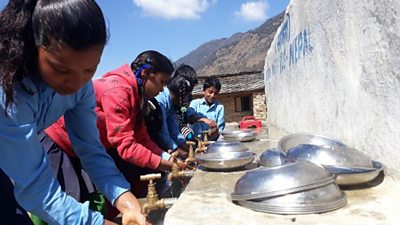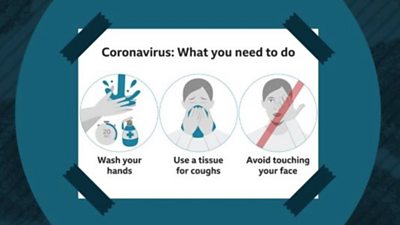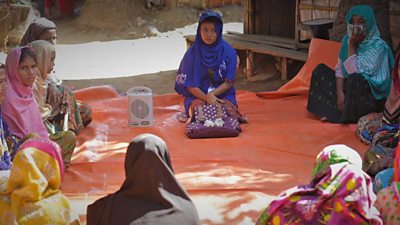Downloads
Publication date: October 2017
Authors: Sanjib Saha, Sabina Pradhan and Mohd Ayub
How can communication address the barriers to, and enablers of, improved WASH and nutrition behaviours? This report summarises the findings of ±«Óãtv Media Action's qualitative research in two districts in Nepal, and proposes recommendations based on the research. Our research identified barriers including a lack of knowledge and understanding around improved practices - including how and when to treat water for drinking, when to use soap for handwashing and what constitutes a balanced diet - as well as entrenched social and cultural norms and poor motivation among parents, teachers and other childcare providers.
Observation revealed that people in the two study sites showed awareness of the importance of handwashing, largely due to the concerted effort of the media and to the community meetings organised by family and community health volunteers and other NGOs. However, most research participants described handwashing as rinsing their hands with water. Many participants said they wash their hands if they are visibly dirty; however, observation showed that the majority were not using soap at these critical moments.
Some male participants in Achham reported that soap does not kill germs, and only removes dirt. Thus, despite being able to afford soap, they – and many others in the two study sites – did not see it a necessary expense; they perceived little to no benefit in using soap for washing their hands.
Social and cultural norms likely play a role in these perceptions. Participants said that older family members are particularly reluctant to use soap when washing their hands. These individuals often provide childcare during the day, so others watch them wash hands with water alone, and learn that it is socially acceptable to do the same.
The World Food Programme (WFP) funded ±«Óãtv Media Action to undertake the nutrition and WASH research and behaviour change communication pilot project, informed by our research. The project aimed to support local groups to produce audience-informed nutrition and WASH behaviour change communication materials which informed people about improved practices, and targeted parents, school officials and other family members.
This WASH project resulted in the creation of public service announcements in 12 districts of Nepal. Further findings and case studies are available in this research briefing.


